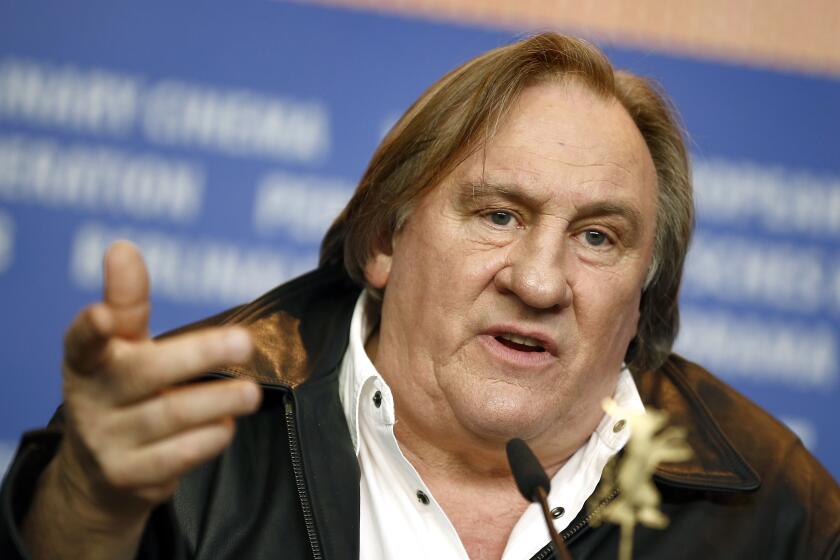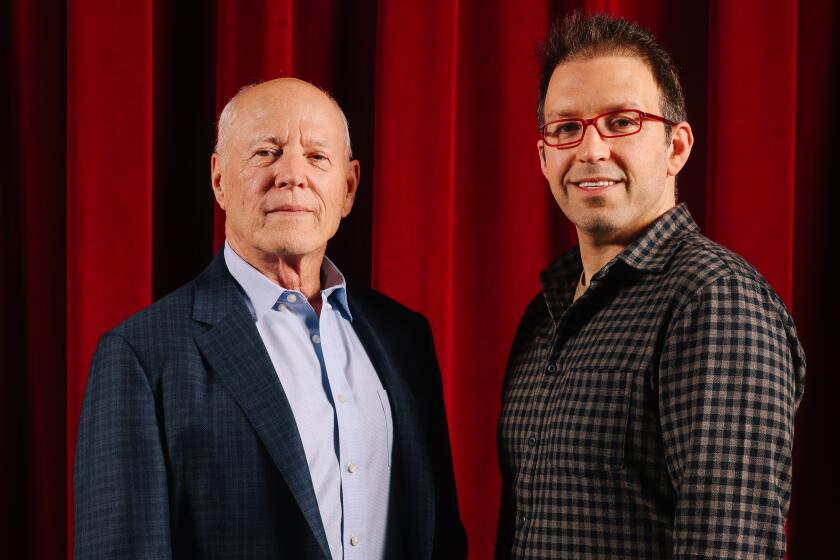Hot air turns to flames
Not long ago, I blamed cable television and talk radio for reducing our complex healthcare debate to theater -- forgoing substance in favor of an endless Wrestlemania-style smackdown over whether President Obama or his opponents had administered the most punishing body slam.
Two weeks and a noisy summer recess later, not much has changed, only I would expand the list of obfuscators beyond broadcast yakkers to the president, who has not framed a clear enough story for change, and to an opposition shamelessly spinning out anti-reform fantasies.
The quick-and-dirty world of television demands -- for better and often for worse -- a simple story line that audiences can follow. In recent weeks, Obama and the Democrats have struggled to present a consistent plot line, allowing Republicans to fill the void with an old and winning theme: Big government and change will be the death of the American Dream.
The fears being sowed by Republicans and some conservative Democrats about high costs and uncertain benefits should come as little surprise. The reform attempts arrive at a time of record deficits and pervasive unease about our personal security.
What’s less routine is “the increasingly angry tone of incitement being heard from right-of-center broadcasters.” Those are the words not of some agitated lefty but of David Frum, a former speechwriter for President George W. Bush, who called out Rush Limbaugh and other conservative commentators for painting the president as everything from a socialist to a Marxist to a racist and “illegitimate Kenyan fraud.”
“All this hysterical and provocative talk,” Frum worried in his essay, which appeared in the Week magazine, “invites, incites and prepares a prefabricated justification for violence.”
Obama is far from the first occupant of the Oval Office to face broad caricature. Left-wing commentators loved to depict Bush as a reactionary half-wit or an unprosecuted war criminal. MSNBC’s Keith Olbermann once compared Bush to “the greatest political felons of our history.”
But Frum and others (including MSNBC’s Chris Matthews and, last Sunday, the New York Times’ Frank Rich) found the anti-Obama rants, many tied to healthcare, particularly disturbing because of the seeming license given to those who might be considering extreme measures.
The potential for real consequences should not be underestimated, Rich wrote, especially considering a spring Department of Homeland Security report about the danger of right-wing political violence.
The argument against Obama and any health plan that increases government intervention fits into a well-worn story line that gained its greatest power under President Reagan, said Drew Westen, an Emory University professor of psychology and psychiatry who wrote “The Political Brain: The Role of Emotion in Deciding the Fate of the Nation.”
“The anti-healthcare reform argument fits into a really well-branded theme from Reagan,” Westen said in an interview, “that Democrats never met a government program they didn’t like or a tax they didn’t want to raise.”
Westen became a favorite of Democratic audiences during the last election for his argument that the party had been too passive, letting Republicans seize the visceral arguments that tend to move voters.
Obama has had little to say about Republican-driven deregulation and the economic calamities that followed an over-reliance on free markets, Westen said.
“Roosevelt never missed the chance to remind people it was the Hoover Depression,” Westen said, “or to say that was what happens when you have powerful moneyed interests with no real control placed over them.”
The political theorist argued that by refusing to name the plan’s real adversaries -- including Republicans and health insurance firms and pharmaceutical companies -- Obama has denied himself the antagonists that would help him tell the healthcare story to the public and the press.
“People are anxious and angry -- over the economy, over losing their jobs and home foreclosures -- and the Democrats have refused on principal to define what people are angry about and what is making them anxious,” Westen said. “You couldn’t have asked for a better bonanza for the Republicans.
“It’s become more and more clear that one of Obama’s greatest strengths, his cool under fire, is also one of his greatest weaknesses, because he is incapable of empathizing with the anger of the American people.”
Frum rejected the idea that Obama suffers merely from a communication problem. The conservative strategist said in an interview that senior citizens, generally happy with their health coverage, resist change they think threatens their care. The young and uninsured, meanwhile, find it hard to understand what they might gain.
“That’s the core of the political problem,” Frum said, “and it’s hard to say you can just communicate your way around it.”
Longtime Republican strategist Dan Schnur, who is director of the Jesse M. Unruh Institute of Politics at USC, said the multiple health reform plans wending through Congress have muddled Democratic arguments to the public and media.
“The lack of a specific Obama plan has created an imbalance in the emotional energy between the two sides,” Schnur said. “So it’s relatively easy for the opposition to find the least desirable aspect of any of those bills and go to town on it.”
There’s no shortage of opportunists on radio and cable TV waiting to take advantage of that energy imbalance.
Witness Glenn Beck’s hyperbolic performance on Monday, when the Fox News host suggested Obama’s health reform is just one tactic designed to “collapse the system,” all part of a plan by the president to implement “1960s radical ideology.”
Who needs facts about the uninsured and spiraling healthcare costs when you’ve got stories like that to tell?
--
On the Media also runs Fridays on Page A2.
More to Read
The biggest entertainment stories
Get our big stories about Hollywood, film, television, music, arts, culture and more right in your inbox as soon as they publish.
You may occasionally receive promotional content from the Los Angeles Times.







